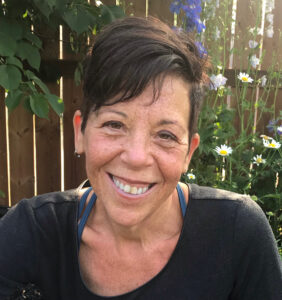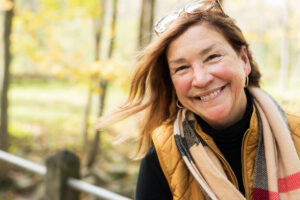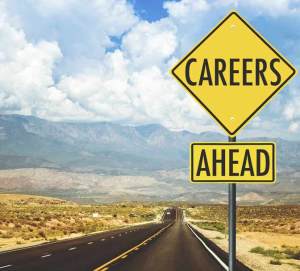phone 403.861.0164 ccpsychologist@proton.me
About

Carolyn Claire, Registered Psychologist.
Over the years I have developed several areas of specialization:
Internal Family Systems (IFS) Therapy: How IFS Can Help You Heal
We all have different ‘parts’ or subpersonalities that make up who we are. For example on Friday afternoon a part of you thinks it is a good idea to leave work early even though you haven’t finished a report. Come Monday morning, you wonder what you were thinking and there is a part of you that is angry with yourself.
The idea that our minds are made up of many different distinct feeling states referred to as parts or sub-personalities has been around for a long time in many psychological and spiritual traditions. Modern neuroscience has confirmed the idea that we are all made up of multiple minds or multiplicity. Rather than seeing the self as an ‘unified being’, it is increasingly shown to be more helpful to acknowledge the different (and sometimes competing) parts and personalities that make us who we are.
Sometimes it may seem that we make our life harder than it has to be. We may have an inner critic that constantly criticizes us depleting our self esteem. Or maybe we have an inner slacker who talks us out of following through on goals. Or an inner child who can easily have their feelings hurt leading to us lashing out saying mean things to those we love.
The IFS model presents a path toward becoming more whole and authentic by healing the disconnection between your inner-world and your consciousness. In so doing, we are able to heal past wounds, ...
Living Authentically
“Tell me how are you going to live this one precious life?” Mary Oliver.
Dr. Gabor Mate, a recognized expert in the field of trauma, addiction, and childhood development, defines authenticity "the quality of being true to oneself, and the capacity to shape one's own life from a deep knowledge of that self" (2022, Mate & Mate, p. 106).
Dr. Mate describes how many of us learned at a young age to disconnect from ourselves – from our truth – to keep people around us or to keep those around us happy. For example, we might have learned that our feelings weren't allowed when a parent yelled “You have nothing to cry about!”. Or maybe our needs and feelings were neglected and in that experience the we learned that what we felt or needed wasn’t important.
Learning to be authentic means working to heal this disconnection. Learning to listen to and connect to your body, to practice curiosity and self compassion for yourself, and to learn what you are feeling and what your emotions are trying to tell you. As we gain insight into your internal system, you become empowered to listen and to trust ...
Healing from our Past: Negative Childhood/Adolescent Experiences
Sometimes the way we have been hurt in important relationships has a lasting effect on our lives (for example neglect, abuse, abandonment, or bullying). These injuries can continue to impact our sense of worth, our ability to function in the world, and our ability to be intimate and trust others. We may strive to put these experiences into our past, but like a ghost they continue to haunt us. I can assist you in processing these experiences (by integrating your memories with your emotions, thoughts, and body sensations), thereby reducing the emotional charge and safely turning the ghosts into ancestors.
I am an LGBT2Q+ affirming therapist which means that I approach therapy in a way that embraces a positive view of LGBTQ2S+ identities and relationships, and that acknowledges/explores the negative impact that homophobia, transphobia, and heteronormativity can have on our lives. I believe it is also important to be mindful that sometimes the issues that bring us to counselling have nothing to do with our sexual and/or gender identity. Affirming therapy means that you are working with someone who is a part of the community and understands the nuances of the LGBTQ2S+ community.
For over 20 years, I have worked with people who were addressing issues that are often unique to someone who lives with an LGBTQ2S+ identity. Having a supportive, affirming, and nonbiased person in your life can be helpful.
*LGBTQ2S+: Is meant to include all minority sexual and gender identities including but not limited to lesbian, gay, bisexual, transgender, queer, and Two Spirit.
Healthy Sexuality
I am a sex positive therapist. I like Carol Queen’s definition of sex positivity to mean ““the cultural philosophy that understands sexuality as a potentially positive force in one’s life, and it can, of course, be contrasted with sex-negativity, which sees sex as problematic, disruptive, dangerous. Sex-positivity allows for and in fact celebrates sexual diversity, differing desires and relationships structures, and individual choices based on consent.”
Our Sexual Health is a vital part of who we are and the lives we live. I appreciate the World Health Organization’s 2002 statement: “Sexual health requires a positive and respectful approach to sexuality and sexual relationships, as well as the possibility of having pleasurable and safe sexual experiences, free of coercion, discrimination and violence.” Unfortunately many of us have not had the opportunity to develop a positive and healthy sense of our sexuality. Sometimes our sexuality has been compromised, silenced, or hurt by other people. Sometimes our sexuality is a part of us that is unknown or maybe even a source of shame.
Anxiety
Anxiety is a normal part of life; it makes sense that when we are doing something new or important we feel nervous or worried about how it will go. Sometimes anxiety becomes intensified to the point of creating problems in our life. Anxiety can interfere in our ability to meet people, make friends, perform in our career, learn new things or feel at peace with ourselves and the world.
I have taken specialized training in cognitive behavioural therapy, which focused on helping clients reduce and manage anxiety. Working at a university setting for 6 years I gained a great deal of experience working with clients to address anxiety, as it was one of the most common presenting issues.
Career Counselling
Whether you contemplating making a mid-life career change or feeling overwhelmed with decisions about what to study after high school, I can help you determine your next steps. I will engage you in a career decision-making process that explores your experiences, values, preferences, and interests to gain insight into what you want and need in your career and life. I will then support you in career exploration, education planning and decision making.
If you are interested, we will use the Strong Interest Inventory and the Myers Briggs Type Inventory to assist in gathering information that can assist us in clarifying your career criteria as well as to generate/affirm career ideas that can then be researched and evaluated (please note that there is a $50 fee to access each one of these inventories).
I have training in career development and have offered career counselling to university students, prospective students, and university alumni for over 15 years.
I completed my graduate work at the University of Calgary in 2007. I have worked as a psychologist for the past 15 years helping people address their mental health and wellness. I have gained experience working with clients addressing a wide range of issues.
My therapeutic work is guided by my values which include: integrity, sex positivity, anti-racism, ethical practice, collaboration, feminism, diversity, equity, and inclusion.
Here is my most recent CV, which documents my professional and academic experiences as well as professional development. If you are interested in learning more about my background and how I became a psychologist you can read more here.
I am passionate about social justice and I am a year-round cyclist, animal lover, a snorkelling enthusiast, and an avid reader. I love being in the outdoors and enjoy hiking in the mountains. My family includes a dog and several cats adopted through rescue groups.
My Approach It can be a challenging to open up to someone new and reveal truths about yourself, your feelings, and your life that you may not have shared with anyone else. I have found it important to take the time to build a strong therapeutic relationship with my clients characterized by respect, compassion, and understanding that then helps to build trust and safety.
I work collaboratively with you to develop a good understanding of the problem, the systems/parts of you that keep the problem in place, and your theory of change. Then, with the goals clarified, we develop a road map together, identifying what you have power to change, and how change will happen. I find it important to draw upon the your strengths, knowledge, and insights to ensure that our work together is meaningful, effective, and sustainable.
My work is informed by mental health research and evidence based practices. I use an integrative approach primarily drawing upon Internal Family Systems although I have training/experience in working with the following modalities: Feminist Therapy, Person Centred Counselling, Emotion Focused Therapy (EFT), and Cognitive Behavioural Therapy. My work is influenced by adult attachment theory; I believe it is through relationships that we come to know and value ourselves.








